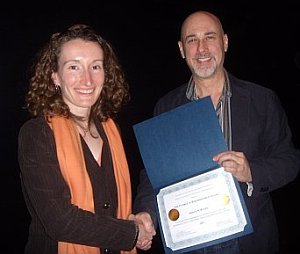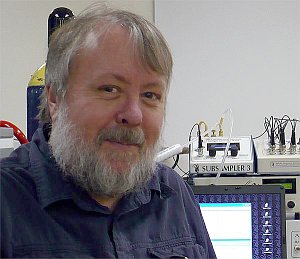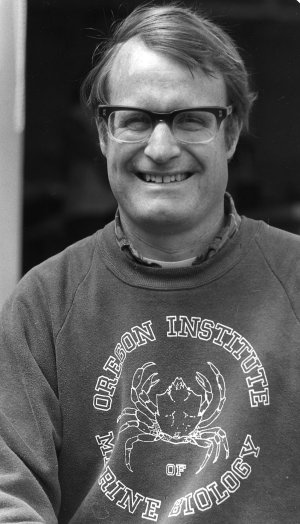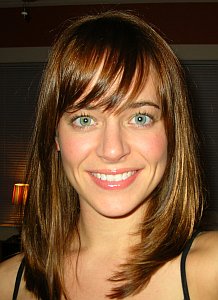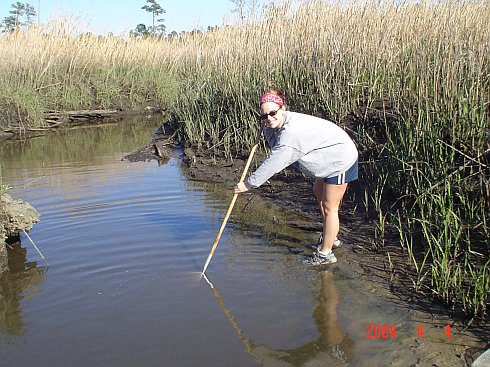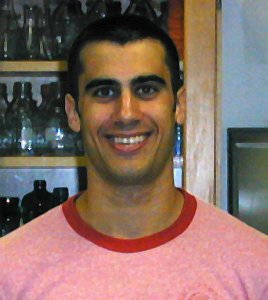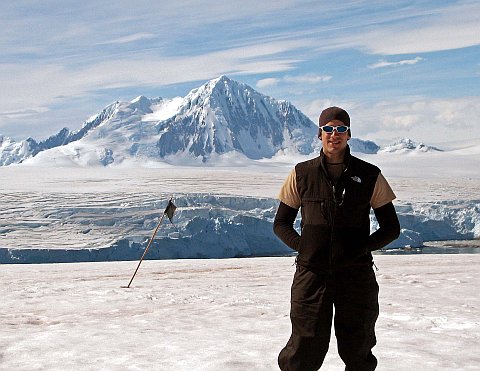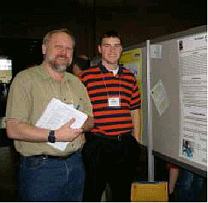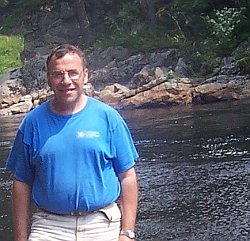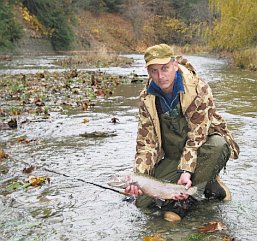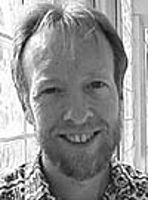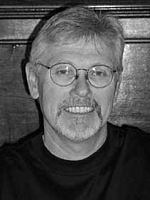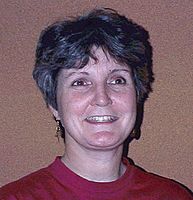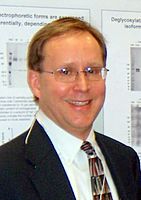
Contents
Experiences in Integrative and Comparative Biology
Al Bennett and Edwin Cooper
Message from the President
John Pearse
Message from the Treasurer
Ron Dimock
Message from the Program Officer
Eduardo Rosa-Molinar
Message from the Past Program Officer
Linda Walters
Message from the Secretary
Lou Burnett
Divisional Newsletters
Comparative Biomechanics (DCB)
Comparative Endocrinology (DCE)
Comparative Physiology and Biochemistry (DCPB)
Developmental and Cell Biology (DDCB)
Evolutionary Developmental Biology (DEDB)
Division of Comparative Physiology & Biochemistry (DCPB): 2008 Spring Newsletter
In this newsletter:
- Message from the Chair
- Message from the Program Officer
- Message from the Secretary
- Minutes of the January 2008 Business Meeting
- Message from the Graduate Student/Postdoc Representative
- 2010 APS Inter-Society Conference: Special Call for Symposia
- Candidates for Elections
Message from the Chair
Joseph B. Williams
By most standards, the SICB meeting in San Antonio, TX, was a success for those who attended. We had 67 oral presentations and 82 poster presentations. DCPB supported 2 symposia, Crustacean Genomics and Evolution vs. Creationism. At the upcoming 2009 Boston meeting DCPB will sponsor a symposium on Biomaterials and we will co-sponsor one on Insect Evolution.
Sheila Patek and Pat Walsh2008 Bartholomew Award recipient: Sheila Patek, UC Berkeley
Dr. Sheila Patek was the winner of the 2008 George A. Bartholomew Award. Named in honor of Professor George A. Bartholomew, this award is given annually by the Division of Comparative Physiology and Biochemistry to a young investigator for distinguished contributions to comparative physiology and biochemistry or to related fields of functional and integrative biology. An Assistant Professor in Integrative Biology at the University of California Berkeley, Dr. Patek studies the evolution of sensory and mechanical systems in arthropods. We congratulate her on this outstanding achievement at such an early stage in her career. Sheila captivated the audience when she presented her work about the biomechanics and evolution of mantis shrimp raptorial strikes and spiny lobster anti-predator acoustics. Thank you Sheila for a stimulating presentation and for making us aware of the cacophony of sound that occurs in the world below the ocean surface. I heard a student say after your presentation, "it was better than National Geographic."
On behalf of DCPB, I wanted to thank the Bartholomew Award Committee, Drs. Gilmour (Chair), Burnett, Gordon, Riddiford, Wainwright, and Huey (ex officio), for their efforts in selecting Dr. Patek as this years Bart Award winner. Sable Systems generously sponsored the Bartholomew Award, a highlight not only for DCPB but the entire SICB community.
John LightonBartholomew Award - Boston 2009
Over the years Sable Systems has presented the Bartholomew Award winner with a check for $500 as a tribute to George Bartholomew, John Lighton's mentor. For the 2009 Boston meeting, John has indicated to me that he will increase this award to $1000. John, we appreciate what you have contributed in scholarship, time, and financial support to DCPB. For those of you who measure metabolic rate of animals, you might want to see John's forthcoming book, "Measuring metabolic rates: A manual for scientists."
Best Student Papers - Robert C.Terwilliger Awards
DCPB presents awards each year for the best student paper and poster. These awards are titled to honor a deceased distinguished comparative physiologist or biochemist. The awards this year are named in honor of Robert C. Terwilliger.
Bob TerwilligerRobert C. Terwilliger 1940-1989
"Who knows more of molecules, tidepools and people? Please tell us again of the bizarre and beautiful things you have seen, read, learned, done, dreamed, imagined. Wonderful, sensitive, questioning, witty, adventurous, zesty, intense man with your awful puns."
That's how Bernie Hartman, friend and colleague, described Bob Terwilliger at the memorial service in February 1989. These words capture the essence of Bob, a poet-scientist who inspired his friends and students to seize the day and celebrate the biology of life. Bob switched his career trajectory as a pre-med/math major dramatically after taking a biology course his senior year at Bowdoin College, and his PhD studies in biology with Frank Belamarich at Boston University focused on characterizing cardioactive peptides from the pericardial organs of the crab Cancer borealis. Spending a summer in the Physiology course at the Marine Biological Laboratory, Woods Hole, further honed his interests in marine invertebrates and introduced him to oxygen-binding proteins and squid hemocyanins (and to his future wife, Nora). He began extensive investigations of invertebrate myoglobins and hemoglobins with his postdoc collaborator, Ken Read, and ventured west for a postdoctoral fellowship at Friday Harbor Laboratory. The diversity and beauty of Pacific Northwest marine inverts helped convince Bob and Nora in 1970 to move with their two young children from New England to a fishing village on the Oregon coast and a faculty position in the University of Oregon's Institute of Marine Biology and Department of Biology. Bob flourished at OIMB, introducing graduate and undergraduate students to the fascination of Comparative Physiology and Invertebrate Zoology through his inspired teaching, both on the Oregon coast and the Eugene campus, until his untimely death in 1989. He expanded his research on oxygen binding proteins with an emphasis on the structure and function of invertebrate hemoglobins - as well as vertebrate hemoglobins, molluscan and arthropod hemocyanins, and hemerythrins! Bob had an eye for the interesting biological question and the organism with which to pursue it, and he clearly recognized the value of experimental studies on non-model organisms. Some of the discoveries from the Terwilliger team included the multidomain structure of the extracellular hemoglobins of planorbid snails and Carditidae clams, hemoglobins from branchiopod crustaceans living in ephemeral, vernal pools in the Oregon desert, terebellid polychaetes with both extracellular and intracellular hemoglobins plus body-wall myoglobins, tube-dwelling serpulid polychaetes with a mixture of red and green blood due to both hemes and chlorohemes, and the unique properties of hemoglobin from a rhizocephalan barnacle parasitic in the king crab. Bob's academic life was filled with enthusiastic teaching and mentoring students in the lab and in the field. He was particularly keen on using marine organisms to convey his love of the beauty of biological patterns and processes and to illustrate the close link he saw between art and science to students and colleagues. Sabbaticals with the family at Friday Harbor Laboratory, WA, Duke University Marine Laboratory, NC, and The Marine Biological Laboratory, Plymouth, England, enhanced his research opportunities. He regularly attended the national meetings of the American Society of Zoologists (now SICB) as an active participant in the Division of Comparative Physiology and Biochemistry (DCPB) and the international meetings on Invertebrate Oxygen-Binding Proteins, and he strongly encouraged his students to present talks and posters at the meetings. Bob's ideals and goals continue to be expressed through Nora's ongoing tenure at OIMB, his children's lives, and in his legacy of the many students, colleagues and friends he inspired. Congratulations to this year's DCPB winners.
Kristen HardyThe best oral presentation by a student in our division was awarded to Kristen Hardy of University of North Carolina Wilmington. We congratulate Kristen and thank her for her outstanding presentation on "Intracellular diffusion constraints may influence organelle distribution in skeletal muscle." In addition to a certificate, DCPB also sent a check for $100 to Kristen, and as you can see from her picture, she was happy to receive it.
Kristen Hardy hails from Birmingham, AL and got interested in research as an neuroscience undergraduate at Tulane University. Her goal in pursuing graduate work was to study neurobiology/neurophysiology in marine organisms. She started as a Master's student with Stephen Kinsey, investigating how reaction-diffusion limitations influence aerobic metabolic rates in giant crustacean muscles. Kristen soon switched to the Ph.D. program and expanded the scope of her research. In her spare time, Kristen surfs, SCUBA dives, runs triathlons, and plays the cello.
Because a large number of students were ranked near the top of the judges list, choosing the best oral presentation was difficult this year. Kelly Hyndman of the University of Florida and Jen Olson of Ohio State University received "Honorable Mention" for their talks. Kelly and Jen received certificates of recognition from DCPB.
Mike ElnitskyThis year the judges selected Mike Elnitsky, a graduate student at Miami University in Ohio, as the presenter of the best poster. The title of Mike's poster was "Salinity tolerance in the antarctic midge: Seawater acclimation confers cross tolerance to freezing and dehydration." Mike also received a check for $100.00 from DCPB, which made him smile too.
Michael Elnitsky grew up in Pennsylvania and completed a B.S. in biology at Slippery Rock University. It was there that he became interested in insect and lower vertebrate cold hardiness research while working with Jack R. Layne. He then moved on to Miami University in Ohio, completed a M.S. degree in Zoology and is (he hopes) in his final year of Ph.D. work with Richard E. Lee, Jr. His doctoral work has focused on the tolerance and physiological response of Antarctic arthropods to environmental stress. As part of this research he has spent two field seasons at Palmer Station on the Antarctic Peninsula, where much of this research was conducted. When not in the lab he enjoys cycling, hiking, and fly fishing.
For those students interested in what the "best poster" looked like, I have reproduced it here.DCPB also recognized Adam Martin, University of Florida, and Jennifer Ro, Ohio State University, with an "Honorable Mention" for their posters. They received a certificate of recognition from DCPB. Well done Adam and Jenny.
Dave Tapley and Mark BollingerJudging posters is a huge task and I wanted to thank David Tapley and members of awards committee for their service in judging oral presentations and posters. Dave's work begins in early September when he begins asking for volunteers to judge posters and talks, a task equivalent to herding cats. Dave, your efforts toward providing critical feedback and rewards for excellence for our young scientists are appreciated. Well done.
Advisory Committee on Fostering Undergraduate Participation in DCBP
Several DCPB members have approached me about fostering more undergraduate participation in SICB meetings. To this end, we have established an advisory committee composed of Bob Mauck, Kenyon College, Itzick Vatnick, Widener University, and Mark Hausman, Bucknell University. Anyone else who is interested in being involved with this committee, or who has ideas that would promote a positive experience for undergraduates at our meetings, please contact Bob Mauck at mauckr@kenyon.edu or Itzick Vatnick at ivatnick@widener.edu. One idea that has surfaced is to present certificate awards to undergraduates for the best presentation by an undergraduate student, oral or poster, apart from general student awards. In addition, we would present certificates of honorable mention to the first and second runner up. Another idea is to hold an undergraduate mixer early in the meeting. At this gathering, we would invite a few graduate students and faculty to serve as mentors to provide advice to undergraduates who might be a bit overwhelmed by their first experience. We anticipate that this might be a coffee break meeting early in the schedule at Boston. Other ideas? Contact Itzick or Bob.
Itzick Vatnik
Bob Mauck with minnow
Message from the Program Officer
Don MyklesDorothy M. Skinner Award to Deborah I. Lutterschmidt
Deborah I. Lutterschmidt was selected this year's winner of the Dorothy M. Skinner Award. The award was established to recognize women in the early stages of their careers and have demonstrated outstanding scholarship and show high potential for continued excellence in research. Dorothy Skinner was an exceptional scientist and an advocate for the promotion of women in scientific careers. Dr. Lutterschmidt earned her Ph.D. in 2006 from Oregon State University and is currently a postdoctoral fellow at the Center for Behavioral Neuroscience, Georgia State University. She gave two papers at the San Antonio meeting.
San Antonio 2008
The meeting was one of our largest, with over a thousand papers presented. The division had 149 abstracts, which were distributed between 67 oral and 82 poster presentations. DCPB cosponsored the symposium "Evolution vs. Creationism in the Classroom: Evolving Student Attitudes," organized by E. Lovely and the late-breaking symposium "Recent Advances in Crustacean Genomics: A Two-Year Progress Report," organized by J. Stillman. Both symposia were well attended.
Boston 2009
The meeting is January 3-7, 2009 at the Westin Waterfront Hotel (http://www.starwoodhotels.com/westin/property/overview/index.html?propertyID=1528).
DCPB is sponsoring a society-wide symposium on Insect Evolution, organized by T. Bradley and A. Briscoe, and a regular symposium on Biomaterials: Properties, Variation, and Evolution, organized by B. Swanson and A. Summers. The program committee will consider proposals for late-breaking symposia for the Boston meeting. Information on this and other meeting details will be announced in the summer and fall.
Advanced Call for Symposia for the 2010 meeting
I encourage you to start thinking about proposing a symposium topic for the 2010 SICB meeting. Information on how to prepare a proposal is at: http://www.sicb.org/meetings/2002/nsfinstructions.pdf
Please feel free to discuss your ideas with me (e-mail: don@lamar.colostate.edu).
Other upcoming meetings (in chronological order):
Experimental Biology 2008 San Diego, CA, April 5-9, 2008. http://www.eb2008.org
The Crustacean Society Summer Meeting Galveston, TX, June 9-13, 2008. http://www.vims.edu/tcs/
6th International Symposium on Fish Endocrinology University of Calgary, Canada, June 22-26, 2008. http://www.isfe.ucalgary.ca
Society for Experimental Biology Marseille, France, July 6-10, 2008. http://www.sebiology.org/meetings/Quicklinks/Registration.html
11th International Coral Reef Symposium Fort Lauderdale, FL, July 7 - 11, 2008. http://www.nova.edu/ncri/11icrs/index.html
4th International Conference in Africa for Comparative Physiology & Biochemistry Maasai Mara National Reserve, Kenya, July 19-25, 2008. http://www.natural-events.com/mara/default-follow.asp
5th North American Echinoderm Conference Melbourne, FL, July 20-25, 2008. http://research.fit.edu/naec/
36th International Congress of Physiological Sciences Kyoto, Japan, July 27-August 1. http://www.iups2009.com/
25th Conference of the European Society for Comparative Physiology & Biochemistry Ravenna, Italy, September 7-11, 2008. http://ESCPBnew.ambra.unibo.it
APS Intersociety Meeting: The Integrative Biology of Exercise V Hilton Head, SC, September 24-27, 2008. http://www.the-aps.org/meetings/aps/hiltonhead08/index.htm
Beijing Joint Conference of Physiological Sciences 2008 Beijing, China, October 19-22, 2008. http://www.the-aps.org/eforms/beijing.asp
For other meetings, consult the web sites for SICB (http://www.sicb.org/meetings/other.php3) and the American Physiological Society (http://www.the-aps.org/meetings/related/index.htm).
Message from the Secretary
Allen Gibbs
As the new DCPB secretary, my job is to facilitate communication among members of our division and with other divisions of SICB. Please feel free to contact me (allen.gibbs@unlv.edu) if you have any suggestions or announcements. I particularly want to encourage you to submit images and short descriptions of your work for our Researchers Database. The DCPB collection (http://www.sicb.org/divisions/DCPB/researchers.php3) contains only five of these so far (and I plead guilty to not having submitted anything yet). We are way behind other divisions.
Minutes of the January 2008 Business Meeting
Message from the Graduate Student/Postdoc Representative
Jennifer Ro
Hello to all DCPB graduate students and postdocs! I hope everyone had a great time in the San Antonio meeting. As a new student/postdoc representative, I would like to thank Joanna, our past representative, for all of her hard work and effort that she offered to our division for past four years! Also I would like to say, that I'm honored to serve as a student/postdoc representative of this great division. I will do my best to facilitate all of your needs during annual meetings and to be your voice during executive committee meetings.
I wanted to congratulate winners of the DCPB student oral and poster competitions:
Oral presentation
Kristen Hardy of University of North Carolina Wilmington: Intracellular diffusion constraints may influence organelle distribution in skeletal muscle
To see her abstract go to: http://www.sicb.org/meetings/2008/schedule/abstractdetails.php3?id=832.
Poster presentation
Mike Elnitsky of Miami University: Salinity Tolerance in the Antarctic Midge: Seawater Acclimation Confers Cross Tolerance to Freezing and Dehydration
To see his abstract go to: http://www.sicb.org/meetings/2008/schedule/abstractdetails.php3?id=38.
During the 2008 annual meeting Student/ Postdoctoral Affairs Committee (SPDAC) hosted two workshops entitled "How to get the most our of your SICB meeting" and "I Have a Great Idea, But Who Will Fund Me: How to Write a Grant." If you have any feedback that you would like you share, please feel free to e-mail me (ro.25@osu.edu).
If you are looking for funding opportunities here are some options:
-Sigma Xi Grants-in-Aid
Applications are due March 15 and October 15 annually
This program awards up to $1,000 to students from all areas of the sciences and engineering, and designated funds from the National Academy of Sciences allow for grants of up to $5,000 for astronomy research and $2,500 for vision related research.
Visit: http://www.sigmaxi.org/programs/giar/index.shtml
-The Journal of Experimental Biology Traveling Fellowships
The Journal of Experimental Biology offers fellowships of up to US$4000 / £2500 to graduate students and post-docs wishing to make collaborative visits to other laboratories.
Applications are due April 30, August 31, and December 31.
Visit: http://jeb.biologists.org/misc/fellowships.shtml
-National Science Foundation Postdoctoral Research fellowships in Biology
Full proposal is due November 3, 2008
Visit: http://www.nsf.gov/funding/pgm_summ.jsp?pims_id=12720.
Also NSF has Doctoral Dissertation Improvement Grant. Visit http:// nsf.gov for details.
-I found a website of Community of Science very helpful not only for funding opportunities but also for other helpful research resources. http://www.cos.com/
During the DCPB executive meeting, Joanna and I tried to brainstorm about some ideas to improve students/postdocs involvement in annual meetings. Some of those were
1) Develop a mentoring system: Pair up senior student and postdoc members who have been around SICB for number of years with new student and postdoc members to provide guidance during the meeting.
2) Having random introduction minuets during SPDAC workshops to facilitate more interaction among student/postdoc members.
3) Develop a social time to meet other divisional students and postdocs to promote interdivisional interaction.
I would like to develop these ideas into action during the next meeting; if you have any feedback or would like to add-on, please let me know.
SPECIAL CALL FOR SYMPOSIA
2010 American Physiological Society Inter-Society Conference on Comparative and Evolutionary Physiology:
Global change and global science: comparative physiology in a changing world
This summer a proposal will be submitted requesting that the APS host a fifth version of this premier international congress in comparative and evolutionary physiology, to be tentatively held in late July, 2010. The theme of the meeting will be Global change and global science: comparative physiology in a changing world. The SICB will participate in this meeting. The Organizing Committee is requesting proposals for symposia that highlight exciting and important new research in comparative and evolutionary physiology. Symposium organizers will receive approximately $1400 from APS to partially allay costs of invited speakers; we can also facilitate search for additional external financial support for symposia. Symposium proposals must be submitted by July 1, 2008 to Jon Harrison, but it is best to submit sooner and to work with a member of the organizing committee to develop the proposal. Please contact any member of the organizing committee if you have questions. Developing information on the meeting will be available at: http://www.public.asu.edu/~icjfh/apsmeeting.
Organizing Committee
Siribhinya Benyajati: siribhinya-benyajati@ouhsc.edu
Andrew Biewener: abiewener@oeb.harvard.edu
David Goldstein: david.goldstein@wright.edu
Jon Harrison (chair): j.harrison@asu.edu
Carlos Martinez del Rio: cmdelrio@uwyo.edu
Hans-Otto Pörtner: hpoertner@awi-bremerhaven.de
Patricia Schulte: pschulte@zoology.ubc.ca
Don Mykles: don@lamar.colostate.edu (Program Officer, Division of Comparative Physiology and Biochemistry, SICB)
2010 APS Conference on Comparative and Evolutionary Physiology Symposium Proposal Form
Symposium Title:
Symposium organizer(s) and contact information:
Scientific justification for symposium:
Describe any Recent Similar Symposia:
Presenters: List up to six (4 + 2 alternates) speakers (each of whom will speak for 30 min), giving institutional affiliation and tentative title.
Symposia will run 2 hrs (based 4 speakers/symposium)
Elections: Candidates for Chair-Elect
Jon Fewell Harrison
Current Position: Professor and Associate Director for the School of Life Sciences, Arizona State University
Education: B.Sc. University of Toronto, 1978; Ph.D. Univ. of Colorado, Boulder, 1987
Professional Experience: Postdoctoral fellow, Dept. of Zoology, University of British Columbia; Selected Honors: Elected Fellow of the American Association for the Advancement of Science, 2005; The Scholander Award, American Physiological Society, 1990; Izaak Walton Killam Postdoctoral Fellowship, 1988, National Science Foundation (NATO) Postdoctoral Fellowship, 1988; Best Student Paper Award, Division of Comparative Physiology and Biochemistry, American Society of Zoologists, 1986
SICB Activities: Co-Organizer (with Robert Sterner), Cross-Society Symposium on: "Integrated Research Challenges: Biological Stoichiometry from Genes to Ecosystems:" (2003 ); Program Officer, Division of Comparative Physiology and Biochemistry (2000-2003); Editorial Board, Physiological and Biochemical Zoology (1999-2007); Best Student Paper Judge, Division of Comparative Physiology and Biochemistry (2000); Co-Organizer (with John E. Phillips), Symposium on "Responses of terrestrial invertebrates to variation in temperature and water availability: molecular, organismal, and evolutionary approaches" (1996); Co-Organizer (with John E. Phillips), Symposium on "Insect Acid-Base Regulation", (1992); Nominating Committee, Division of Comparative Physiology and Biochemistry, (1990-91)
Other Memberships: American Physiological Society; Scholander Award Competition Judge, American Physiological Society (2000)
Research Interests: Ecological and evolutionary physiology, insect physiology, respiratory and nutritional physiology.
Statement of Goals: I remember my first SICB meeting very clearly. It was after my first semester as a graduate student (December, 1982) and I remember being stunned when I realized that these important-sounding people whose papers I had been reading were real people, and that some of them were actually friendly! I have always considered SICB to be a critical society for our discipline, and am proud to be a 25 year member. As chair of DCPB, I would work to further promote our discipline within SICB and beyond. I haven't thought hard about specific policies I'd promote yet, but I do think that a "best poster by an undergraduate" is something to consider.
James W. Hicks
Current Position: Professor of Ecology and Evolutionary Biology, University of California, Irvine
Education: B.S., California State University at Fullerton (1977); M.S., University of New Mexico (1979); Ph.D., University of New Mexico (1984)
Professional Experience: Postdoctoral fellow with Dr. Norbert Heisler at the Max-Planck Institute for Experimental Medicine in Gottingen, Germany (1984-1985); postdoctoral fellow with Dr. Fred N. White at the Physiological Research Lab, Scripps Institution of Oceanography, UCSD (1986-1987); Assistant and Associate Professor, Creighton University School of Medicine (1988-1992)
SICB Activities: Editor-in-Chief 2002-present of Physiological and Biochemical Zoology, a journal, sponsored by the Division of Comparative Physiology and Biochemistry of the SICB; PBZ began publishing in 1928, and publishes results of original investigations in animal physiology and biochemistry.
Other Memberships: American Physiological Society
Research Interests: As a broadly trained, integrative physiologist, my research efforts are divided among five areas; understanding the mechanism(s), regulation and functional significance of cardiac shunting in "lower vertebrates", investigating the factors that determine and regulate the cardiopulmonary response to elevated metabolism in vertebrates, investigating the ontogeny of cardiovascular regulation, studying acclimatization to hypoxia and investigating the effects of gravity on the vertebrate cardiovascular system. My research focuses on vertebrates and spans several vertebrate groups. My laboratory provides an evolutionary perspective into circulation and respiration and seeks to discover not only differences among organisms, but the unifying principles shared by diverse organisms.
Statement of Goals: If elected chair of the Division, my goals are to strengthen our interactions and communication with other societies, such as the American Physiological Society, the Society for Experimental Biology and the International Union of Physiological Sciences. Through the development of co-sponsored symposia at meetings sponsored by these various societies and/or the development of conferences, we promote the exchange of ideas with physiologists from all backgrounds and underscore the importance of comparative physiology and biochemistry.
Elections: Candidates for Program Officer
Kathy Dickson
Current Position: Professor of Biological Science, California State University Fullerton
Education: 1977, B.A., Zoology, Connecticut College; 1988, Ph.D., Marine Biology, Scripps Institution of Oceanography
Professional Experience: 1984-1985, Lecturer, University of San Diego; 1985-1988, Assistant Professor, Bucknell University; 1988-present, California State University Fullerton; visiting researcher at the Inter-American Tropical Tuna Commission Achotines Laboratory in Panama, the National Maine Fisheries Service Kewalo Research Facility in Hawaii, and the University of Cambridge
SICB Activities: SICB member almost continuously since 1980 and have attended a majority of the annual meetings since then.
Other Memberships: American Institute of Fishery Research Biologists, American Society of Ichthyologists and Herpetologists, Southern California Academy of Sciences
Research Interests: My research focuses on understanding the development and evolution of endothermy in fishes, and on muscle function in fish swimming. Generally, my research uses an integrative approach, using techniques ranging from enzyme assays and microscopy to whole organism respirometry and swimming kinematics, and involves a comparative approach to elucidate patterns of evolution.
Statement of Goals: Two of SICB's strengths are its integrative focus and the large number of students and postdoctoral researchers who participate in the annual meetings. It is a vibrant and growing organization! As the largest division within SICB it is important that DCPB offers symposia at each meeting and also that DCPB jointly sponsors symposia that integrate the different subdisciplines. If elected DCPB Program Officer, I will work with the membership and the Program Officers of other divisions to develop symposia on topics that are of wide interest and involve as many young investigators as possible. I am also interested in working with the education committee on symposia or sessions that present best practices of teaching and ways to integrate comparative physiology and biochemistry into biology curricula.
Don Lovett
Current Position: Professor, Department of Biology, The College of New Jersey, 2006-present
Education: B.A.S., University of Montana, Zoology (1975); B.S., University of Montana, Fisheries (1975); M.S., University of Michigan, Ann Arbor; Resource Ecology (1977); Ph.D., University of Louisiana, Lafayette, Evolutionary and Environmental Biology (1988)
Professional Experience: Assistant and Associate Professor, The College of New Jersey, Department of Biology (1990-1996); Lecturer and Research Associate, Lake Forest College, Department of Biology (1988-1990); Research Assistant, NOAA Sea Grant, University of Southwestern Louisiana, Department of Biology (1985-1988); Aquatic Ecologist, U.S. Army Corps of Engineers, Kansas City District (1981-1983)
SICB Activities: Member of SICB since 1982; I have brought over 20 undergraduate students to present their research since 1989. I have been a best student paper judge for DCPB, DIZ and TCS for almost 15 years, serving as committee chairperson in 1998 and co-chair in 2007. I was a panelist on the Post Doc/Student Workshop in 2006: "Strategies for Landing an Academic Job/Post Doc."
Research Interests: The focus of my research has been osmoregulation in estuarine crabs. I have examined time-course changes in gill ultrastructure and Na+,K+-ATPase activity and expression following salinity change and currently am testing candidate compounds as signals for these changes. I also am examining how methyl farnesoate levels respond to hemolymph ionic content and osmolality. Other areas of research include ontogeny and physiology of the shrimp digestive system, shrimp nutrition, allometric growth in crustaceans, and vertical migration of zooplankton.
Statement of Goals: Recognizing how important SICB was to my own development as a scientist, one of my goals will be to promote SICB's efforts to enhance and support undergraduate and graduate student participation in the organization. I also wish to work toward reducing schedule conflicts between symposia and related contributed sessions at the annual meeting.
Link to officer list on DCPB page
